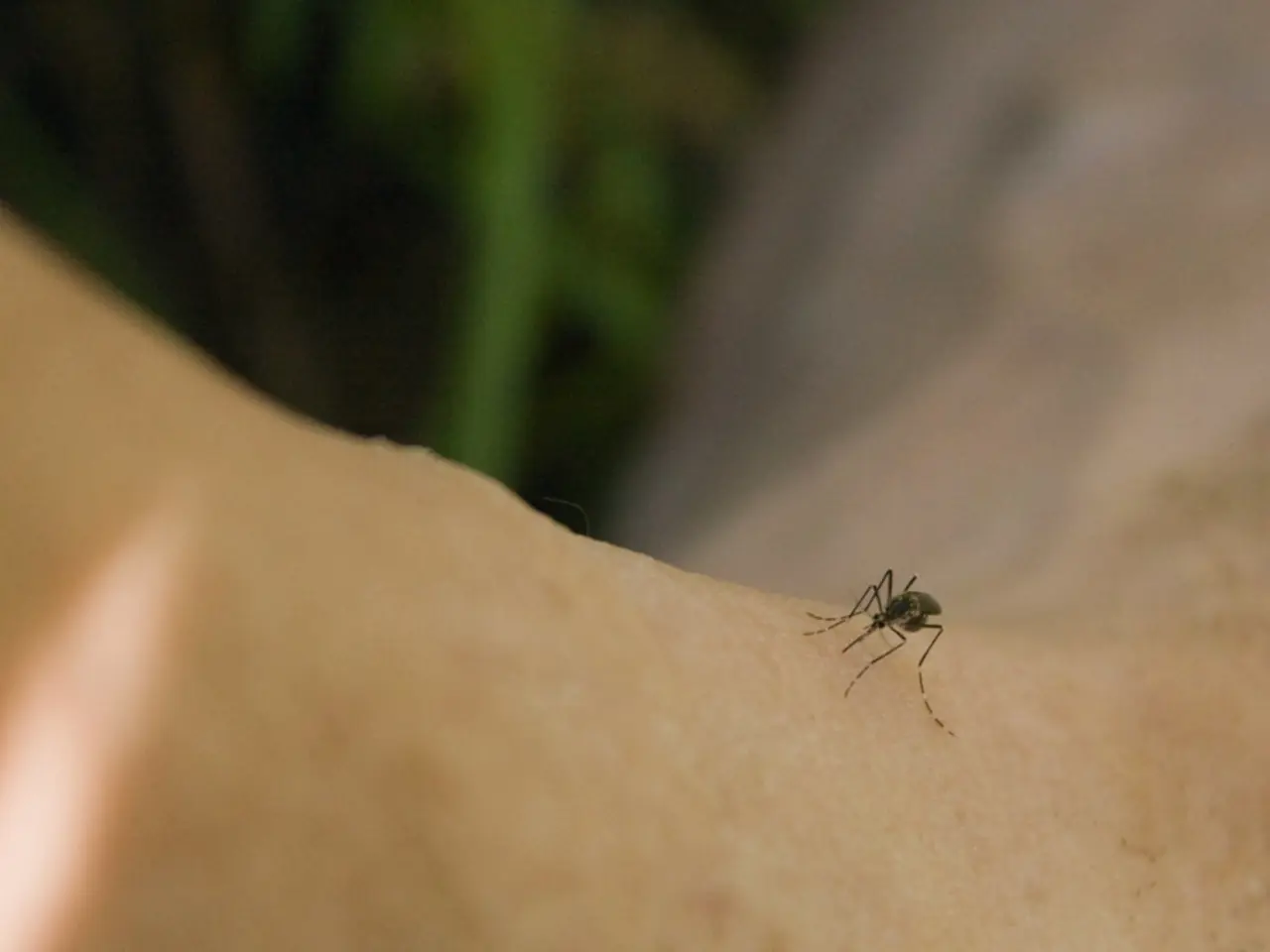Unconventional method targeting "toxic males" suggested for the elimination of tropical illnesses!
The "toxic male mosquito" technique, a variant of the Sterile Insect Technique (SIT), is making waves in the fight against mosquito-borne diseases such as malaria, dengue, Zika, and chikungunya. This innovative approach, which involves mass-rearing male mosquitoes, sterilizing them, and releasing only these sterile males into the wild population, has shown promise in reducing female mosquito populations and, consequently, the transmission of these diseases.
Recent advancements in the field include genetic discoveries that enable better control of the released males. These improvements include temperature-sensitive lethality mutations, which help in reliably separating males and females, ensuring that only sterile males are released. This development addresses previous challenges and enhances SIT's effectiveness.
Unlike traditional chemical insecticides, the sterile male approach bypasses issues related to resistance development and behavioral adaptations in mosquitoes, which can limit the effectiveness of these chemicals over time.
The "toxic male" technique offers several benefits:
- It provides a species-specific, environmentally friendly alternative to chemical controls.
- It reduces the number of biting and disease-transmitting females by preventing reproduction.
- It has a proven track record in pest control beyond mosquitoes, with increasing sophistication making it more viable for mosquitoes.
- It is a promising tool to complement existing mosquito control strategies to combat diseases like malaria, dengue, Zika, and chikungunya.
However, it is important to note that SIT and related genetic methods require careful implementation, sustained releases, and integration with other control measures—such as habitat elimination and larviciding—to maximize impact.
Scientists at Macquarie University have taken the "toxic male" technique a step further by developing a new technique using genetically modified mosquitoes with toxic sperm. This method, which matches the speed of pesticides without harming beneficial species, could pave the way for widespread application in areas plagued by mosquito-borne illnesses.
The production of genetically modified mosquitoes will focus on manipulating gene expression, ensuring that laboratory-bred females can be fertilized without succumbing themselves. If successful, this technique could significantly reduce instances of disease transmission globally, as millions of people are affected by these diseases each year.
As pesticide resistance increases among harmful insects, genetic biological control offers hope for managing mosquitoes that carry sometimes deadly diseases. The goal of the technique is to reduce the population of female mosquitoes, which can transmit infectious diseases like malaria and dengue to humans. The success of such techniques could mark a significant milestone in the global fight against mosquito-borne diseases.
[1] Source: Authoritative 2025 peer-reviewed publication [2] Source: Various scientific research articles and publications on the Sterile Insect Technique (SIT) and related genetic methods for pest control.
- Collaborative research in the field of health-and-wellness, spearheaded by scientists at Macquarie University, has developed a new strategy with genetically modified mosquitoes carrying toxic sperm, aiming to combat mosquito-borne diseases such as malaria and dengue.
- The advancement in science, through genetic discoveries and methods, offers a potential solution to health issues related to mosquitoes, ensuring healthier populations by reducing instances of disease transmission.




